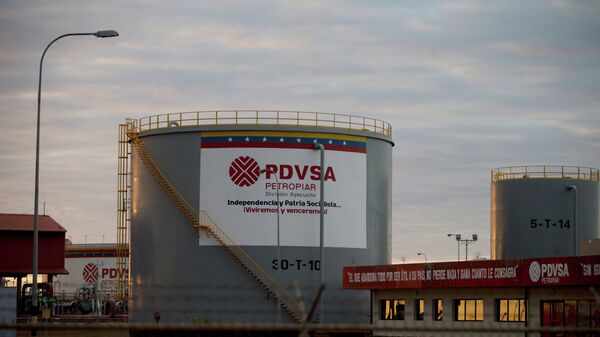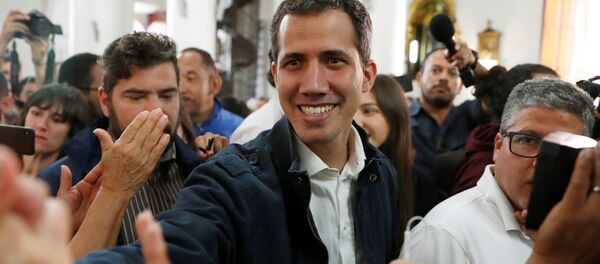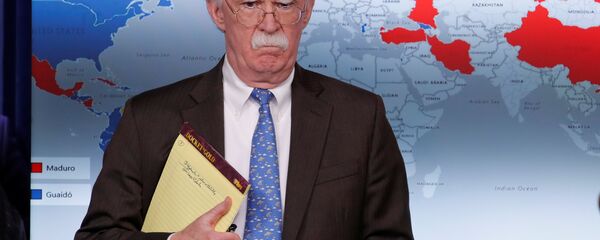China has two major reasons for supporting the government of President Nicolas Maduro and resisting US and opposition efforts to institute regime change in Venezuela, Dr. Antonio C. Hsiang, director of the Center for Latin American Economy & Trade Studies at Taiwan's Chihlee University of Technology, explained.
Speaking to Sputnik, Dr. Hsiang recalled that from the economic perspective, "under the oil-for-loan deals, China lent Venezuela approximately US$60 billion between 2007 and 2017."
"However, Beijing's support is not without limits. Last year China balked at making new financial commitments because of an outstanding bilateral debt reportedly in excess of $19 billion," the academic added.
"During the meeting with Maduro last September, [Chinese President Xi Jinping] said 'Developing relations with Venezuela was a strategic decision for China…China and Venezuela have to enhance friendly mutual trust and push for mutually beneficial cooperation'. It is unwise to change [this] stand in less than five months," the academic noted.
Furthermore, "it is true that the current situation in Venezuela is a part of the geopolitical game by the US to contain China, at least to prevent China's further 'natural extension' to the US' backyard," Hsiang added.
The Venezuelan crisis poses a threat to Beijing's plans. "Consequently, China should remain vigilant that several so-called 'comprehensive strategic partners' in Latin America are not on her side, such as Brazil, Argentina, Chile, Panama and Mexico," Dr. Hsiang concluded.
China's Venezuelan Investment
Last week, a US government source speaking to The Wall Street Journal said that the Trump administration has reportedly adopted a new strategy toward all of Latin America aimed against Cuba, Russia, China and Iran, with Venezuela at the forefront of a more aggressive doctrine looking to sow discord between Caracas and Havana and cause the "collapse of the regimes" in both countries.
The long-running political crisis in Venezuela entered a new phase last week, after National Assembly head Juan Guaido proclaimed himself the country's interim president. The US and its Latin American, Canadian and European allies supported the attempted coup, while Russia, China, Mexico, Cuba, Bolivia, Nicaragua, Iran and Turkey voiced their support for Nicolas Maduro, the country's democratically elected president, and urged outside powers not to meddle in Venezuela's affairs.




